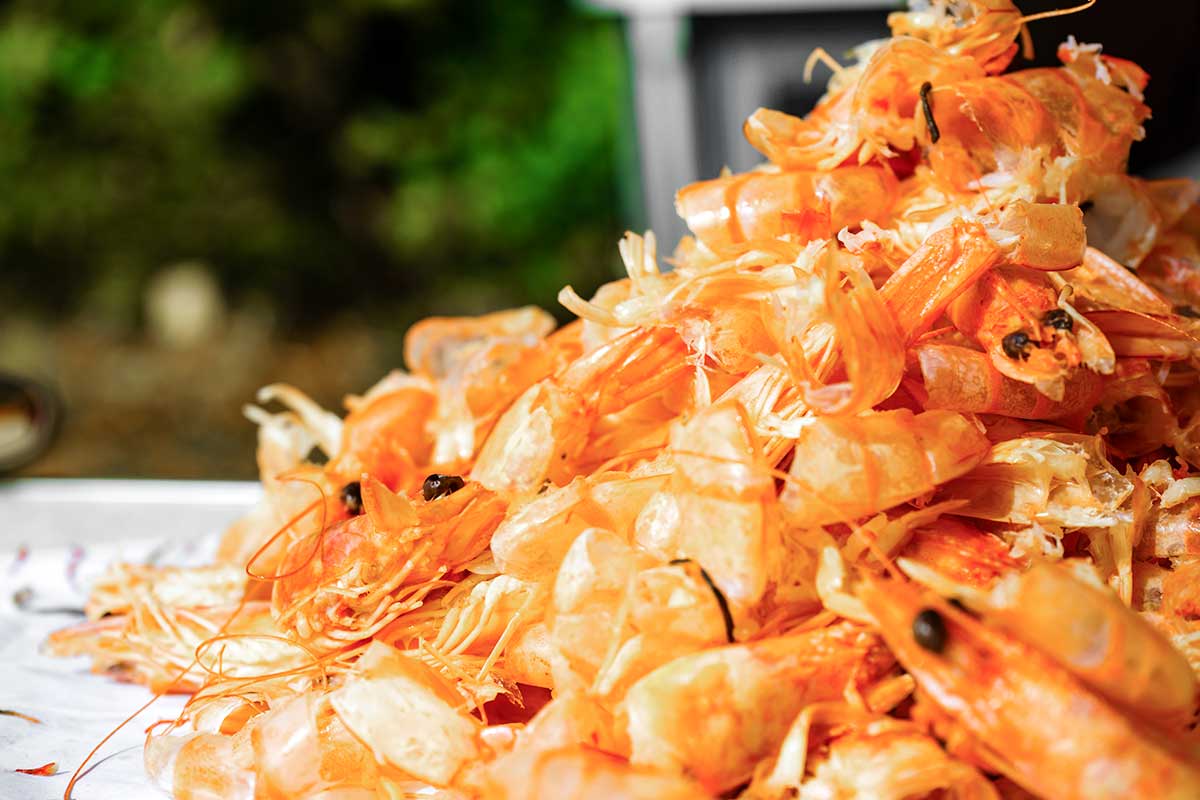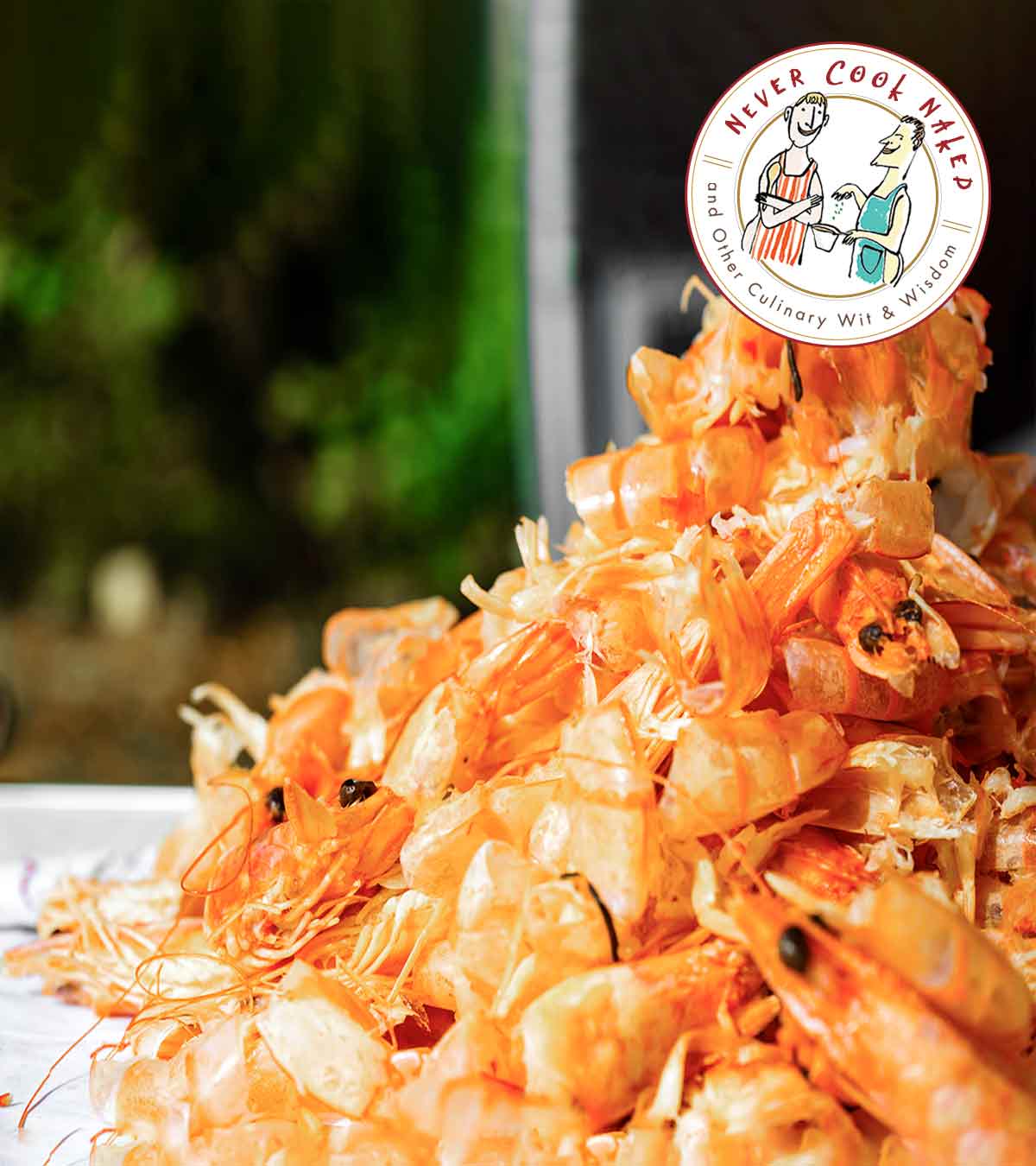

Should I save shrimp shells or toss them?
Dear Never Cook Naked Guys: What to do with shrimp heads and shells after you’ve extracted every possible morsel of shrimp and drop of juice? Compost them? Put them down the garbage disposal? Use them for stock?—Shell-Shocked
Dear Shell-Shocked: Here’s a rule-of-thumb we use in our house: Once a piece of food has been in someone’s mouth, it’s garbage. Feel free to adopt it in yours.
While we’re at it, here’s our off-the-cuff corollary: You can’t make stock out of table scraps. Those shells have been doused with herbs, spices, oils, sauce, maybe even spittle. Not even Martha can make stock for shrimp and grits out of them.
Want to Save This?
Can I compost shrimp shells?
To answer your question, yes, you can compost shrimp shells. Many home gardeners swear by shellfish compost. (Caveat: Some public piles won’t accept shells owing to a desire for pristine vegan mulch.) Just make sure your personal pile is far from your house, as shrimp shells do indeed put up something of a stench in the hot sun– although that’s actually the least of your worries, because the more tasty things you toss on the pile, the more furry well-wishers you’ll attract. In our neck of the woods, we worry about bears. You may have to contend with raccoons or chipmunks. Consider yourself warned.
As for putting shrimp shells down the drain, they can–and will–clog the garbage disposal. They also make for an odiferous trash can. Our best advice is to stuff the shells in a zip-closed bag, stash them in the freezer, and save them for trash day, when you haul them to the curb—along with any of that stock you’ve made.
Our very clever, very clothed Never Cook Naked columnists are at your disposal, able to troubleshoot everything from questionable table etiquette to tricky cooking techniques (as well as, natch, proper cooking attire). Ask us your question in a comment below!
Originally published August 9, 2021









Garburators are banned in many areas, particularly in Canada.
They clog drains, give off odour and to rinse them you will waste two gallons of water.
They are also a strain on waste water systems and in some area they are dumped directly in the ocean or lakes.
That’s a good point, Lloyd. Thank you.
I save shrimp shells if they are peeled and deveined first, before cooking. Toss them in the freezer to make stock. I use Emeril’s recipe.
Great suggestion, Michelle. Thanks!
Nice going, Michelle, I do the same.